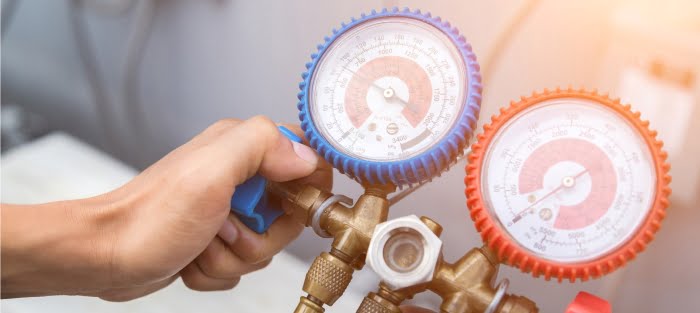
In a move to incentivize sustainable home comfort systems, the U.S. government has enhanced the Federal Residential Energy Efficiency Tax Credit through the Inflation Reduction Act. This update is effective for installations completed after December 31, 2022 and it’s great news for homeowners who have invested in qualifying energy-efficient air conditioners and heat pumps. Now, eligible homeowners can benefit from a tax credit of up to 30% of the project cost or a maximum of $2,000.
The Federal Residential Energy Efficiency Tax Credit has long been a motivating factor for homeowners looking to reduce both their environmental impact and energy bills. The recent update under the Inflation Reduction Act introduces significant changes, most notably an increase from the previous $500 cap to a more substantial 30% of the total project cost or a maximum of $2,000.
Eligibility Criteria
To take advantage of this updated tax credit, homeowners must ensure that their air conditioners or heat pumps meet the qualification criteria. The installed systems must be:
Energy Efficient: The units must meet or exceed the efficiency requirements outlined by the U.S. Department of Energy (DOE) to qualify for the tax credit. Requirement details for qualifying products can be found at EnergyStar.gov.
Installed After December 31, 2022: Only installations completed after this date are eligible for the enhanced tax credit.
Primary Residence: The tax credit applies to improvements made to a taxpayer’s primary residence.
Manufacturer Certification: Ensure that the installed equipment is certified by the manufacturer as meeting the necessary energy efficiency standards.
Application Process
Applying for the updated tax credit is a straightforward process. Here are the steps homeowners should follow:
Keep Documentation: Maintain detailed records of the installation, including receipts, invoices, and the manufacturer’s certification.
Complete IRS Form 5695: Use IRS Form 5695 to calculate the residential energy credits. This form will require information about the installed systems and associated costs. Form 5695 can be found at IRS.gov.
Submit with Tax Return: When filing annual federal tax returns, attach the completed Form 5695 to claim the energy efficiency tax credit.
Benefits of the Updated Tax Credit
The increased tax credit offers homeowners several benefits:
Financial Savings: Homeowners can now enjoy a more substantial tax credit, providing a greater financial incentive to invest in energy-efficient heating and cooling solutions.
Environmental Impact: By encouraging the adoption of energy-efficient technologies, the government aims to reduce overall energy consumption and decrease the carbon footprint associated with home heating and cooling.
Long-Term Cost Reduction: Energy-efficient air conditioners and heat pumps not only qualify for tax credits but also contribute to lower energy bills over the system’s lifespan.
The updated Federal Residential Energy Efficiency Tax Credit presents an excellent opportunity for homeowners to make environmentally conscious choices while enjoying financial benefits. By opting for qualifying energy-efficient air conditioners and heat pumps, homeowners can not only enhance the comfort of their living spaces but also contribute to a more sustainable future. Stay informed about the latest guidelines and don’t miss out on the chance to maximize your savings while making a positive impact on your home and the environment. For frequently updated Federal & State tax credit information, make sure to visit our HVAC Tax Credits page.
continue reading
Related Posts
Here’s what renters should know about North Carolina laws regarding landlords’ responsibilities for air conditioning in rental properties.
While these popular social media hacks may seem like a quick and cost-effective solution, they can pose significant threats to your safety and home.
One simple yet effective way to enhance comfort and energy efficiency during these warmer months is by adjusting the direction of your ceiling fan’s rotation.




